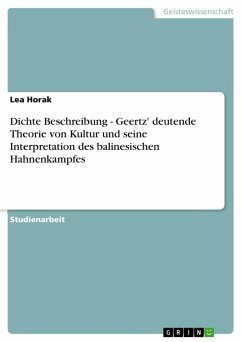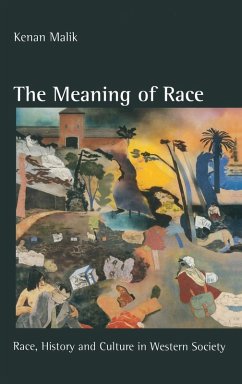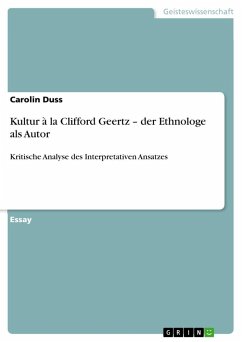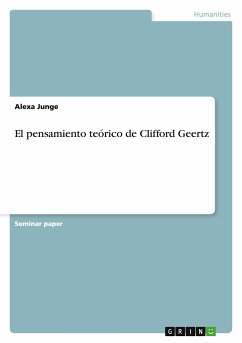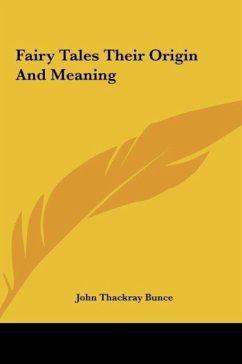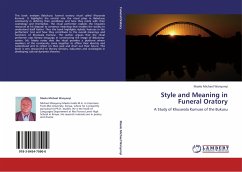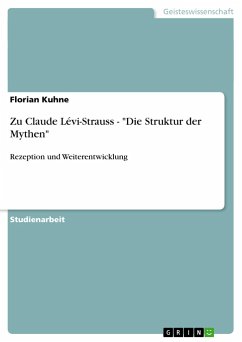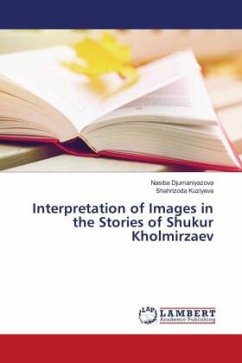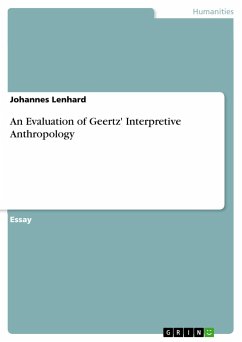
An Evaluation of Geertz' Interpretive Anthropology

PAYBACK Punkte
0 °P sammeln!
Essay from the year 2013 in the subject Ethnology / Cultural Anthropology, grade: 64%, University of Cambridge, language: English, abstract: As Geertz himself has recognised, "one cannot write a 'General Theory of Cultural Interpretation'" (TD, 26). It might therefore be wrong right from the beginning to talk about his 'project'. Accepting this notion for a moment, one has furthermore to acknowledge that Geertz has only picked up different traditions - namely those of Weber, Boas and Kluckhohn in the social sciences and Wittgenstein and Husserl in philosophy - and 'melted' them into a distingu...
Essay from the year 2013 in the subject Ethnology / Cultural Anthropology, grade: 64%, University of Cambridge, language: English, abstract: As Geertz himself has recognised, "one cannot write a 'General Theory of Cultural Interpretation'" (TD, 26). It might therefore be wrong right from the beginning to talk about his 'project'. Accepting this notion for a moment, one has furthermore to acknowledge that Geertz has only picked up different traditions - namely those of Weber, Boas and Kluckhohn in the social sciences and Wittgenstein and Husserl in philosophy - and 'melted' them into a distinguishable whole (Ortner, 1984). If one also dismisses this historical analysis for a moment and takes Geertz project of an 'interpretive anthropology' as a given whole, a description develops around his notions of semiotic culture, thick description, small matters and native narratives.It is in those ideas that one finds both Geertz' strengths and weaknesses as I argue below. Arguing both in abstract, theoretical terms and in relation to Geertz' major ethnographies - Negara, Meaning and order in Moroccan society and Deep play - the significance of the interpretive project is undeniable but not without limitations: Does the interpretation of culture as a text make sense? How does Geertz link his focus on 'small matters' towards an analysis of culture? Is it possible to deny theory?




